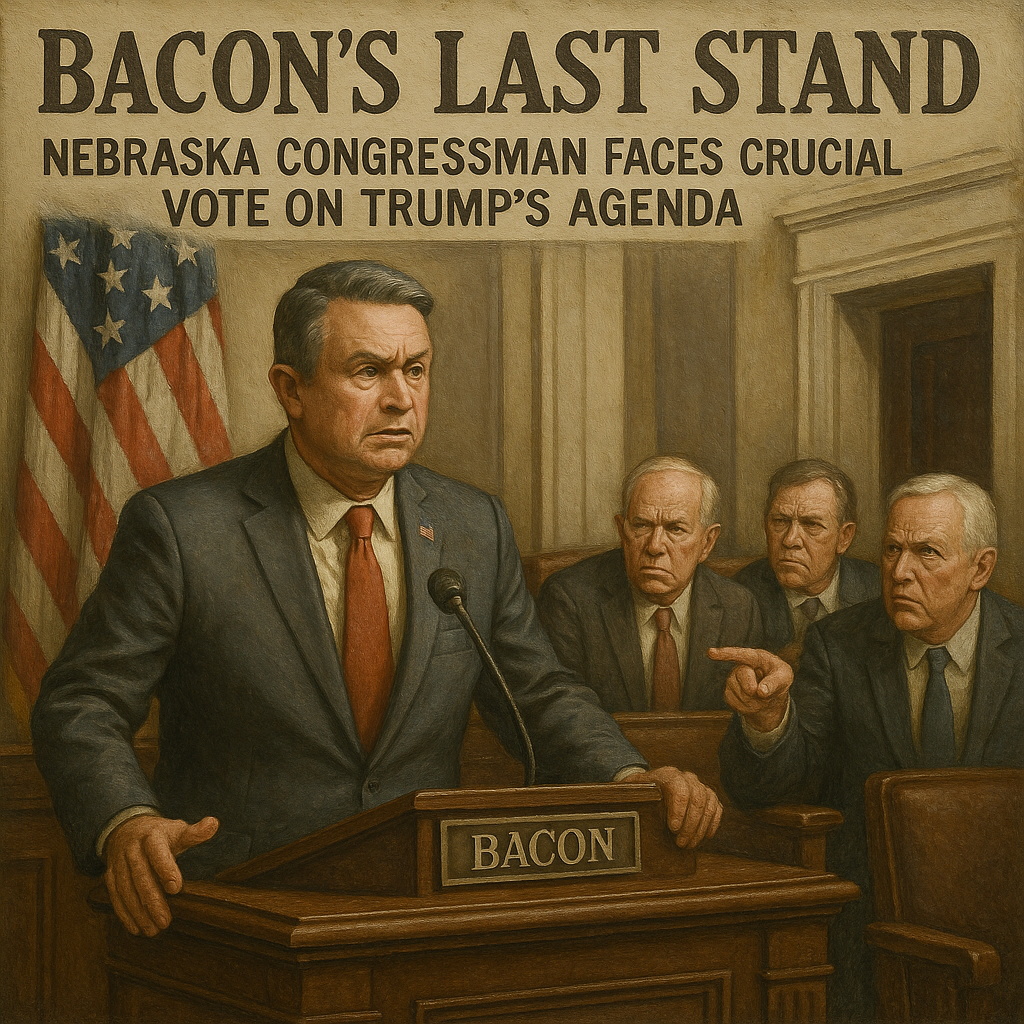BACON'S BIG CHOICE: WILL NEBRASKA REP BACK TRUMP – OR BETRAY VOTERS?
As Representative Don Bacon of Nebraska's 2nd Congressional District approaches the end of his tenure, he confronts a pivotal decision: whether to align with President Donald Trump's latest legislative initiatives. Bacon, a self-described Reagan Republican and member of the bipartisan Problem Solvers Caucus, has often found himself at odds with the more conservative factions of his party.
Throughout his congressional career, Bacon has demonstrated a willingness to cross party lines. He was among the 35 House Republicans who voted to establish a commission investigating the January 6th Capitol attack, a move that drew criticism from former President Trump and his allies. Additionally, Bacon supported the Respect for Marriage Act, codifying federal recognition of same-sex marriage, and co-sponsored the Emmett Till Antilynching Act, establishing lynching as a federal hate crime.
In May 2025, Bacon was the sole Republican to vote against a bill that would rename the Gulf of Mexico to the "Gulf of America," a measure backed by President Trump. Bacon expressed his disapproval, stating, "I just think America is better than this. We're not an imperialistic nation... I don't think we need to be renaming things. I think it's unnecessary." ([wowt.com](https://www.wowt.com/2025/05/08/how-they-voted-most-nebraska-iowa-representatives-support-renaming-gulf-mexico/?utm_source=openai))
Despite these instances of dissent, Bacon has also supported key elements of Trump's agenda. He voted against impeaching President Trump and opposed a resolution condemning Trump's controversial tweets directed at four congresswomen. Bacon's nuanced positions reflect his efforts to balance party loyalty with his centrist principles.
As he prepares to leave Congress, Bacon's upcoming vote on President Trump's latest policy proposals will serve as a defining moment in his legislative legacy. The decision will not only impact his standing within the Republican Party but also influence the political landscape of Nebraska's 2nd District, a region known for its electoral significance and diverse voter base.
Observers note that Bacon's choice could signal the future direction of moderate Republicans navigating the complexities of party dynamics in the Trump era. His vote will be closely watched as an indicator of how centrist lawmakers reconcile personal convictions with party expectations.
